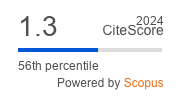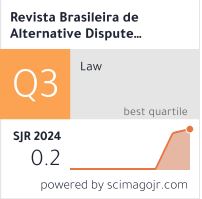Mediation in Japan
DOI:
https://doi.org/10.52028/rbadr.v5i9.ART05Resumo
The preference for amicable dispute resolution is deeply rooted in Japanese culture, and there is a long history in Japan of using mediation to manage conflicts. Mediation was used to resolve disputes between merchants and samurai warriors in the 17th century and to resolve claims between private actors and utility companies arising from the Fukushima nuclear disaster in the more recent past. While court mediation is common in contemporary Japan, private mediation is comparatively rare despite legislative changes in 2007 meant to promote growth. Mediation in Japan tends to be evaluative, and private sessions with parties are common. These standards derive, in part, from procedures used in court mediation. However, norms are being revisited in the case of commercial disputes. In 2018, the Japan International Mediation Center opened in Kyoto, prompting greater attention to alternative models of mediation and international commercial mediation standards. Meanwhile, recent international mediation trainings and events have paid more attention to aspects of mediation that are uncommon in court mediation in Japan including joint sessions and non-evaluative facilitation. A recent high-profile international commercial mediation highlighted the potential of co-mediation to manage linguistic and cultural differences. These movements have not resulted in a sea change in mediation culture, but they may in time lead to greater diversification of procedures and perceptions about mediation.
Referências
AWAD, Dora R. Mediação de conflitos no Brasil: atividade ou profissão. Revista Brasileira de Alternative Dispute Resolution – RBADR, v. 2, n. 4, p. 57-66, 2020.
COMETTI, Anna K. F; MOSCHEN, Valesca R. B. The Singapore Convention in the framework of the Investor-State Dispute Settlement System. Revista Brasileira de Alternative Dispute Resolution – RBADR, v. 4, n. 7, p. 37-57, 2022.
BRAGANÇA, Fernanda; Netto, Fernando G. M. O protocolo familiar e a mediação: instrumentos de prevenção de conflitos nas empresas familiares. Revista Brasileira de Alternative Dispute Resolution – RBADR, v. 2, n. 3, p. 217-230, 2020.
FARIAS, Bianca O. Mediação de conflitos em ambientes educacionais: um horizonte com novas perspectivas. Revista Brasileira de Alternative Dispute Resolution – RBADR, v. 2, n. 3, p. 157-194, 2020.
FERREIRA, Daniel B; SEVERO, Luciana. Multiparty Mediation as Solution for Urban Conflicts: A case analysis from Brazil. BRICS Law Journal, v. VIII, n. 3, p. 5-29, 2021. DOI: https://doi.org/10.21684/2412-2343-2021-8-3-5-29.
BAUM, Harald. Mediation in Japan. Development, Forms, Regulation and Practice of Out-of-Court Dispute Resolution. Oxford: Oxford University Press, 2012.
CALLISTER, Ronda Roberts; . WALL, JR., James A. Japanese Community and Organizational Mediation. The Journal of Conflict Resolution, v. 41, n. 2, p. 311-328, Apr. 1997.
CLAXTON, James; NOTTAGE, Luke. Getting Into Gear: The Japan International Mediation Centre – Kyoto. In: SAMSOM, Wolters; KLUWER. Kluwer Mediation Blog, 17 Sep. 2018.
MASON, Paul E. A Convenção de Cingapura e seus benefícios para o Brasil. Revista Brasileira de Alternative Dispute Resolution – RBADR, v. 2, n. 4, p. 181-193, 2021.
NOBUAKI, Iwai. Alternative Dispute Resolution in Court: The Japanese Experience. Journal on Dispute Resolution, v. 6, n. 2, 1991.
NOTTAGE, Luke; CLAXTON, James. “Japan is Back” – for International Dispute Resolution Services? In: SAMSOM, Wolters; KLUWER. Kluwer Mediation Blog, 29 Jan. 2018.
OKADA, Haruo. JIMC-KYOTO – An Attractive Option for International Mediation. Japan Commercial Arbitration Journal, v. 1 2020.
RHEUBEN, Joel; NOTTAGE, Luke. Resolving Claims from the Fukushima Nuclear Disaster. Japanese Law in Asia-Pacific Socio-Economic Context. Japanese Law in the Asia-Pacific, Sydney, 26 Jan. 2015.
Downloads
Publicado
Edição
Seção
Licença
Não serão devidos direitos autorais ou qualquer outra remuneração pela publicação dos trabalhos.
As opiniões emitidas pelos autores dos artigos e resenhas são de sua exclusiva responsabilidade.







